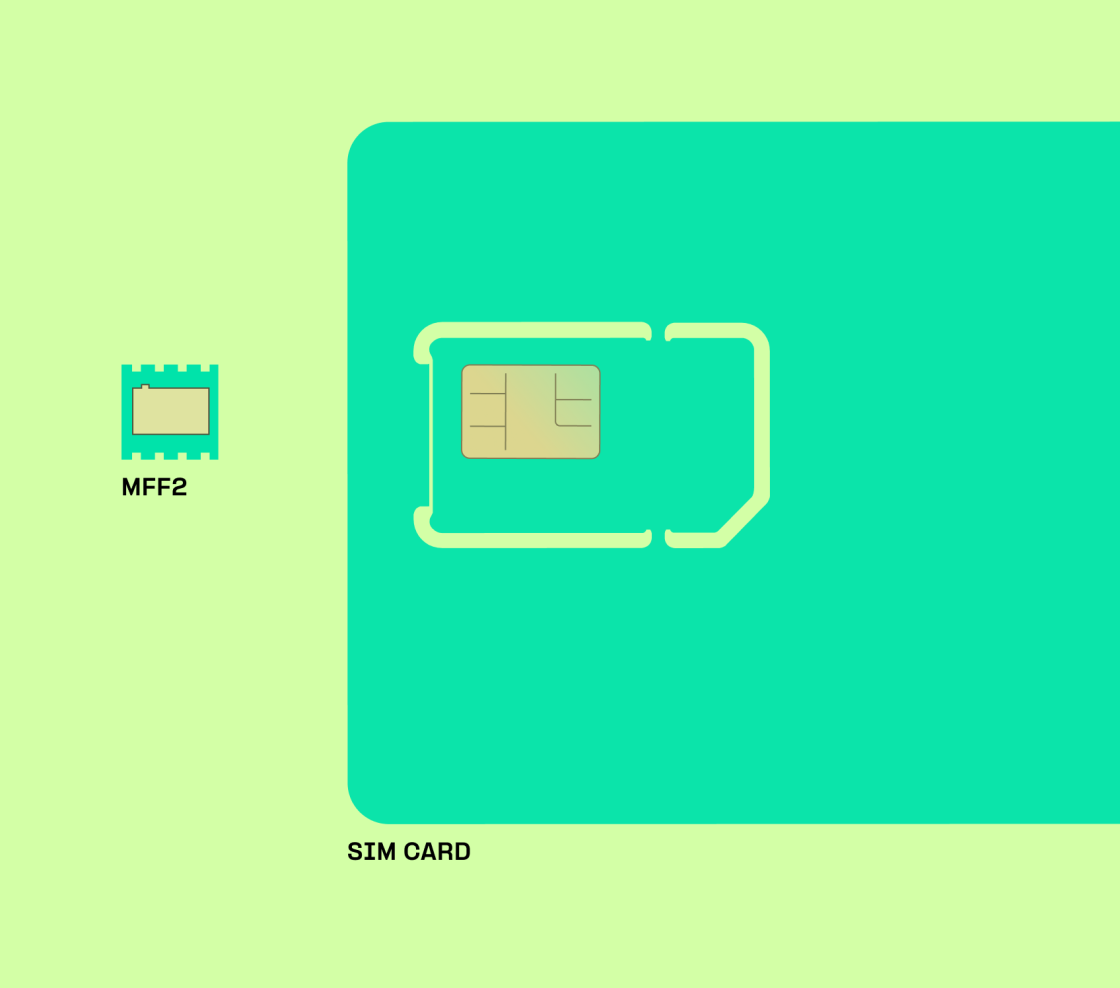Does Nb-Iot Need A Sim Card Global IoT SIM Cards Business
Does Nb-Iot Need A Sim Card Global IoT SIM Cards Business
Blog Article
Iot Sim copyright Global IoT SIM Connected Devices
The landscape of producing is evolving rapidly, driven primarily by technological developments. Among these developments, IoT connectivity solutions for manufacturing automation stand out as pivotal parts reshaping how industries function. The Internet of Things (IoT) integrates digital and bodily worlds, making a community of interconnected gadgets that communicate seamlessly. This interconnectedness allows producers to optimize their processes and enhance productivity.
Real-time data is a cornerstone of contemporary manufacturing. Through IoT connectivity options, machines and sensors generate information that provide insights into manufacturing processes. This immediate entry to info empowers manufacturers to make informed choices shortly. For occasion, if a machine is underperforming, operators can establish the issue and implement corrective actions without delay, finally minimizing downtime and enhancing throughput.
Predictive maintenance is one other significant benefit of IoT connectivity options. By continuously monitoring equipment performance via quite a few sensors, producers can anticipate failures before they occur. This proactive strategy drastically reduces maintenance prices and improves the lifecycle of machinery. Instead of adhering to a reactive maintenance strategy, organizations can optimize their maintenance schedules based mostly on precise machine conditions.
Hologram Global Iot Sim Card Global IoT ecoSIM Card
IoT technology additionally facilitates better supply chain management. With the combination of sensors throughout the supply chain, producers gain enhanced visibility into inventory levels and materials flows. This improved visibility allows businesses to optimize stock administration, ensuring that they've the required materials readily available without overstocking. Such effectivity translates to lowered prices and improved service levels, which are crucial for sustaining a aggressive edge.
Automation and robotics are increasingly reliant on IoT connectivity solutions. Smart factories combine automated methods powered by IoT to streamline manufacturing processes. Robotics geared up with IoT capabilities can communicate with one another and adjust their actions primarily based on real-time information from the environment. This level of synchronization allows the implementation of adaptive manufacturing techniques that respond to fluctuations in demand quickly and effectively. copyright Iot Sim Card.
Telkomsel Iot Sim Card Multi-Network M2M SIM global Internet Things
Implementing IoT connectivity options requires a strong community infrastructure. Manufacturers should invest in dependable and safe communication networks capable of handling the immense information generated by interconnected units. 5G expertise is emerging as a vital enabler of IoT connectivity in manufacturing. Its rapid pace and low latency support the real-time purposes which may be essential for data-driven decision-making.
Data analytics plays a vital function in harnessing the full potential of IoT connectivity options. With a wealth of data generated from linked devices, manufacturers should make use of superior analytics tools to extract actionable insights. Machine learning algorithms can identify patterns and anomalies in data that will not be apparent to human analysts. This data-driven strategy enhances operational efficiency by driving continuous improvement across manufacturing processes.
Cybersecurity is an essential consideration as manufacturers these details combine IoT solutions into their operations. The connectivity that IoT brings will increase the floor space for potential cyberattacks. Implementing robust safety measures to safeguard crucial manufacturing techniques is paramount. This involves guaranteeing that every one units are secure, data is encrypted, and steady monitoring for threats is in place.
Worker security is significantly improved via IoT connectivity options. Wearable units equipped with sensors can monitor the health and safety of staff in actual time. These smart wearables can alert personnel to hazardous conditions, ensuring well timed intervention. Such measures not only shield staff but in addition contribute to general productiveness by minimizing the risk of accidents.
Best IoT SIM Card Everything about IoT SIMs
The transition to smart manufacturing by way of IoT connectivity solutions additionally promotes sustainability. By optimizing processes, producers can significantly scale back waste and energy consumption. IoT units assist observe useful resource utilization, enabling businesses to establish areas the place efficiency may be enhanced. These environmentally friendly practices not only profit the planet however can also end in price financial savings over time.
The influence of IoT connectivity solutions on manufacturing extends past the operational realm. They allow enhanced buyer engagement by permitting manufacturers to deliver customized products and services. Through IoT-enabled devices, manufacturers can collect data about customer preferences, resulting in the creation of tailored offerings that better meet market demands. This degree of engagement fosters customer loyalty and strengthens brand status.
In conclusion, IoT connectivity options for manufacturing automation symbolize a transformative force within the trade. By providing real-time insights, predicting equipment failures, bettering supply chain administration, and enhancing worker security, these options redefine operational efficiency. As producers continue official site to combine IoT technologies, the benefits lengthen past traditional metrics of productivity and value. Embracing these improvements sets the groundwork for a more sustainable and responsive manufacturing environment that is geared up to satisfy the challenges of the lengthy run.
Iot Device With Sim Card IoT SIM Cards Professional IoT Connectivity

- Enhanced real-time monitoring via IoT sensors permits producers to trace equipment efficiency and operational efficiency.
- Predictive maintenance is facilitated by IoT connectivity, decreasing downtime and increasing gear lifespan by way of timely interventions.
- Seamless integration of IoT units throughout production lines enhances knowledge assortment, leading to improved decision-making processes.
- Wireless technologies similar to LPWAN allow cost-effective communication over huge manufacturing facilities, minimizing set up complexity.
- Cloud-based IoT platforms provide scalable solutions for information analytics and visualization, empowering producers to establish tendencies and optimize workflows.
- Enhanced asset tracking utilizing IoT units ensures better stock management and decreased losses as a result of misplacement or theft.
- Industry-specific IoT protocols, like MQTT and CoAP, guarantee efficient and secure knowledge transmission tailored to manufacturing needs.
- Advanced cybersecurity measures are crucial in IoT ecosystems to guard sensitive operational knowledge from potential threats and breaches.
- Integration of IoT with machine learning algorithms allows for autonomous adjustments and enhancements in manufacturing processes based mostly on historical information.
- Collaboration with IoT solution suppliers permits manufacturers to customise connectivity strategies that tackle their distinctive operational challenges.
What are IoT connectivity solutions for manufacturing automation?
IoT connectivity solutions enable seamless communication between machines, sensors, and units within a producing environment, facilitating knowledge exchange, monitoring, and control to reinforce operational efficiency and decision-making.
How do IoT connectivity options improve manufacturing processes?
These solutions streamline workflows, reduce downtime, and optimize asset utilization by providing real-time data insights, enabling predictive maintenance, and enhancing supply chain visibility.
Sim Card Per Iot IoT SIM Cards Fair pricing reliability expert
What types of IoT connectivity technologies are commonly used in manufacturing?

Common technologies include Wi-Fi, Zigbee, LoRaWAN, cellular (4G/5G), and Bluetooth. Each technology provides distinctive benefits based on range, information transfer pace, and energy consumption fitted to completely different manufacturing wants.
How safe are IoT connectivity solutions for manufacturing?
Robust security measures, together with encryption, gadget authentication, and community segmentation, are important to protect manufacturing environments from cyber threats, making certain knowledge integrity and operational continuity.
4g Iot Sim Card The Evolution of SIM Cards IoT Devices
Can IoT connectivity solutions be built-in with current manufacturing systems?
Yes, many IoT options are designed for interoperability, permitting integration with legacy techniques and equipment. This allows producers to reinforce their capabilities with out changing present infrastructure.
4g Iot Sim Card IoT SIM
What are the cost implications of implementing IoT connectivity solutions?
Initial setup prices may vary, however long-term savings are sometimes realized by way of elevated efficiency, reduced waste, and improved maintenance strategies (Does Nb-Iot Need A Sim Card). A detailed cost-benefit analysis might help decide the financial impression.
How can I select the right IoT connectivity resolution for my manufacturing facility?

Evaluate elements similar to scalability, reliability, ease of integration, and particular use case requirements. Consulting with business experts and conducting pilot tasks may help in figuring out the most effective fit for your needs.
What Is An Iot Sim Card Global IoT ecoSIM Card
What are the challenges in adopting IoT connectivity solutions for manufacturing?
Challenges could include cybersecurity issues, interoperability points, and the need for staff coaching. Addressing these obstacles through strategic planning and stakeholder involvement can facilitate profitable adoption.
How does data collected by way of IoT connectivity influence decision-making in manufacturing?
Real-time data analytics allows producers to make knowledgeable selections quickly, optimizing operational processes, improving high quality management, and enabling proactive administration of assets and potential issues - M2m Iot Sim Card.
Report this page